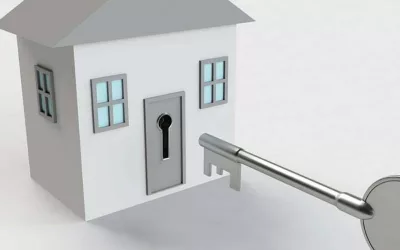Owning a home is a dream for many, but what if your credit history is less than stellar? The prospect of obtaining a mortgage with bad credit can seem daunting, but it’s not necessarily impossible. In this blog post, we’ll explore the nuances of securing a mortgage with less-than-perfect credit and provide insights on how to navigate this challenging terrain.
Understanding the Impact of Bad Credit: Before delving into the possibilities of obtaining a mortgage with bad credit, it’s crucial to understand the impact of your credit score on the loan approval process. Lenders use credit scores to assess an individual’s creditworthiness, and a lower score may result in higher interest rates, stricter terms, or even outright rejection.
Factors Influencing Mortgage Approval with Bad Credit:
1) Credit Score Thresholds: Different lenders have varying criteria for what they consider acceptable credit scores. While traditional lenders may have stricter standards, some specialized lenders or government-backed programs may be more lenient. Many lenders will go down to 580 credit scores, and some will go lower.
2) Down Payment: A larger down payment can mitigate the risks associated with rough credit. Offering a substantial upfront payment demonstrates your commitment and may make lenders more willing to work with you. If a qualifying credit score is <580, FHA will require a minimum of 10% down payment.
3) Employment and Income Stability: Lenders often assess your employment history and income stability. A steady job and consistent income can strengthen your mortgage application, even if your credit history is less than perfect.
4) Debt-to-income ratio: Lenders evaluate your debt-to-income ratio to gauge your ability to manage mortgage payments alongside other financial obligations. A lower ratio may compensate for a weaker credit score. A debt-to-income ratio is calculated by dividing the total monthly debt payments by the qualifying gross income for the borrowers.
5) Government-backed Programs: Investigate government-backed programs, such as FHA (Federal Housing Administration) loans, which are designed to assist individuals with lower credit scores. These programs often have more flexible requirements.
Navigating the Mortgage Process:
1) Check Your Credit Report: Start by obtaining a copy of your credit report. Identify any errors and take steps to correct them. Understanding your credit history allows you to address potential concerns proactively.
2) Seek Professional Advice: With a mortgage broker, you have a valuable resource at your disposal. Consult with industry experts who can provide tailored guidance based on your specific situation. They can help identify lenders who may be more accommodating to borrowers with less than perfect credit.
3) Build a Strong Application: Strengthen your mortgage application by emphasizing factors that showcase your financial stability. This includes a detailed employment history, evidence of consistent income, and a compelling letter of explanation for any past credit issues. Depending on the loan program, there is a list of compensating factors that may assist in qualifying.
4) Consider a Co-Signer: A co-signer with a stronger credit history can enhance your application’s appeal to lenders. Keep in mind that this person will share responsibility for the mortgage.
5) Explore FHA Loans and Other Options: Investigate government-backed programs like FHA loans, which often have lower credit score requirements. Research alternative lenders that specialize in working with borrowers with less-than-perfect credit.
Conclusion: While obtaining a mortgage with past credit challenges may present difficulties, it’s essential to approach the process strategically. By understanding the factors influencing mortgage approval, taking proactive steps to strengthen your application, and exploring various options, you can increase your chances of turning the dream of homeownership into a reality. As a mortgage broker, our expertise and guidance can make a significant difference in helping clients navigate this journey successfully.
What are mortgage rates today?
For most people, buying a house is one of the biggest investments they’ll ever make. It can be a daunting process, with many different factors to consider. One of the key factors that can make a significant difference in homeownership is understanding mortgage rates....
How to Choose the Right Down Payment for My Mortgage?
As you embark on the journey of buying your own home, one of the crucial decisions you'll face is determining the right down payment for your mortgage. The down payment has a significant impact on your overall financing, interest rates, and monthly mortgage payments....
What are the top 5 tips for having a smooth mortgage process?
Obtaining a mortgage can often feel like navigating treacherous waters. The process may seem overwhelming with the myriad of paperwork, financial details, and lender requirements. However, armed with the right knowledge and strategies, you can confidently and easily...




